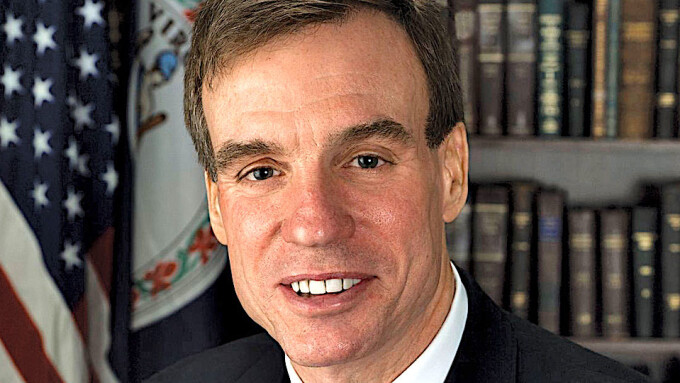WASHINGTON — Senator Mark R. Warner (D-Va.) and two other Democratic Senators introduced, earlier this month, a Section 230 reform bill, the Safeguarding Against Fraud, Exploitation, Threats, Extremism and Consumer Harms (SAFE TECH) Act.
The SAFE TECH Act, according to a statement from Warner’s office, aims to “allow social media companies to be held accountable for enabling cyber-stalking, targeted harassment and discrimination on their platforms.”
The bill is co-sponsored by Senators Mazie Hirono (D-Hawaii) and Amy Klobuchar (D-Minn).
Warner’s opinion is that the liability protections of Section 230 — the so-called First Amendment of the internet — have “conferred sweeping immunity on online providers even when they do nothing to address foreseeable, obvious and repeated misuse of their products and services to cause harm.”
“Section 230 has provided a ‘Get Out of Jail Free’ card to the largest platform companies even as their sites are used by scam artists, harassers and violent extremists to cause damage and injury,” Warner added, claiming that the SAFE TECH Act “doesn’t interfere with free speech.”
“Internet platforms must either address the serious harms they impose on society or face potential civil liability,” added Hirono.
According to Warner’s statement, the new bill removes Section 230 liability protections from “ads or other paid content,” it allows “victims to seek court orders where misuse of a provider’s services is likely to cause irreparable harm” and ensures “that victims of abuse and targeted harassment can hold platforms accountable when they directly enable harmful activity,” among other provisions.
“These reforms,” Warner’s office stated, “ensure that victims have an opportunity to raise claims without Section 230 serving as a categorical bar to their efforts to seek legal redress for harms they suffer — even when directly enabled by a platform’s actions or design.”
The proposal has the endorsement of several Civil Rights organizations, including the NAACP.
Potential Impact to 'War on Porn' 'Lawfare'
The section of the bill that is most relevant to the adult industry, particularly in the context of the current War On Porn, is the removal of liability immunity in cases of a “request or injunctive relief arising from the failure of an interactive computer service provider to remove, restrict access to or availability of, or prevent dissemination of material that is likely to cause irreparable harm.”
Since religiously inspired groups like NCOSE and Exodus Cry have been funding campaigns to create massive liability for adult platforms for moderation failures and third-party content uploaded by bad actors, this Section 230 carveout is likely to be used by those groups as a way to wage relentless “lawfare” — defined as “the misuse of legal systems and principles against an enemy, such as by damaging or delegitimizing them, wasting their time and money” — against legitimate adult businesses.
Criticism From Senate's Ranking Tech Democrat
Another Senate Democrat, Oregon’s Ron Wyden — the lawmaker with the most knowledge about Section 230 — has pointed out the dangers of Warner’s SAFE TECH Act.
"Unfortunately, as written, it would devastate every part of the open internet and cause massive collateral damage to online speech," Wyden told the pro-censorship Washington Examiner newspaper, which regular publishes anti-porn propaganda by Exodus Cry and other groups.
"This bill would have the same effect as a full repeal of 230 but cause vastly more uncertainty and confusion, thanks to the tangle of new exceptions," Wyden added.
Other internet law experts, like Greg Guice, from advocacy group Public Knowledge, have pointed out that “the SAFE TECH Act's multiple exceptions to Section 230 would make it far more difficult to succeed for future online startups that cannot afford the legal costs necessary to comply with the bill's requirements.”
"The SAFE TECH Act is everything but safe for the internet," agreed Section 230 expert James Czerniawski, Tech and Innovation Policy Analyst at Utah’s free-market think tank Libertas Institute.
"The bill haphazardly throws together a bunch of the ill-thought-out 230 proposals from last year in hopes that one of them will do something about the internet," Czerniawski told XBIZ. "SAFE TECH would revoke the 230 immunity from any websites that exchange money for content. While the FAQ provides that the bill is only targeted at advertising, the bill text reflects a much broader scope. If anything, the Warner bill is yet another signal that Congress doesn't actually know what problems they want to solve."
Recent statements and proposals, however, show that the bipartisan push to “do something” about Section 230 has outlasted the Trump presidency and will continue to generate debate through the Biden administration.
Democratic Representative Tom Malinowski (D-N.J.) told Reuters this week that Section 230 “is a priority for me, and we have had preliminary conversations with the White House on a path forward” to reform.
Main Image: Sen. Mark R. Warner (D-Va.).








